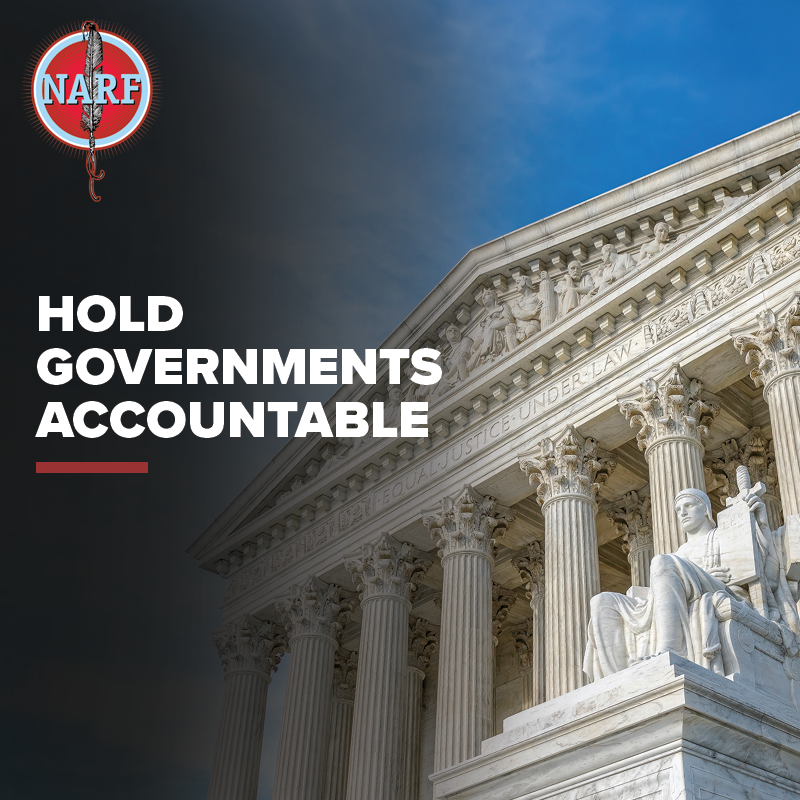The fight to hold state lawmakers accountable to voters continues. On Tuesday, July 2, 2024, at the request of the Turtle Mountain Band of Chippewa Indians, the Spirit Lake Tribe, and individual Native voters, the U.S. Supreme Court vacated an Eighth Circuit ruling that would have given state legislators complete immunity from civil discovery.

“The troubling wording in the Eighth Circuit ruling would have damaged citizens’ rights and the health of U.S. democracy by placing state lawmakers above the law and closing access to the public redistricting process,” said Native American Rights Fund (NARF) Staff Attorney Michael Carter.
Tuesday’s decision in Turtle Mountain Band v. ND Legislative Assembly is related to a discovery dispute in the case Turtle Mountain Chippewa v. Howe. In Howe, the Tribes and Native voters sued North Dakota in 2022 because its newly adopted legislative map diluted Native American voting power. During that case, the plaintiffs requested that six North Dakota legislators and one staff member share nonprivileged documents and depositions related to the redistricting process. The magistrate and district judges supported the document request. However, on appeal, a divided panel of the Eighth Circuit held that state legislators are absolutely immune from this kind of civil discovery in federal courts.
Meanwhile, the voters and Tribal Nations went to trial and won their redistricting challenge, which, according to the Supreme Court, was cause to vacate the Eighth Circuit’s unprecedented opinion. Tuesday’s Supreme Court decision upholds citizens’ right to hold elected officials accountable.
NARF, Campaign Legal Center (CLC), and the Law Office of Bryan L. Sells, LLC, represent the voters and Tribal Nations. Robins Kaplan LLP represents the Turtle Mountain Band of Chippewa and Spirit Lake Tribe.
More About: Turtle Mountain Chippewa v. Howe
More blog posts

